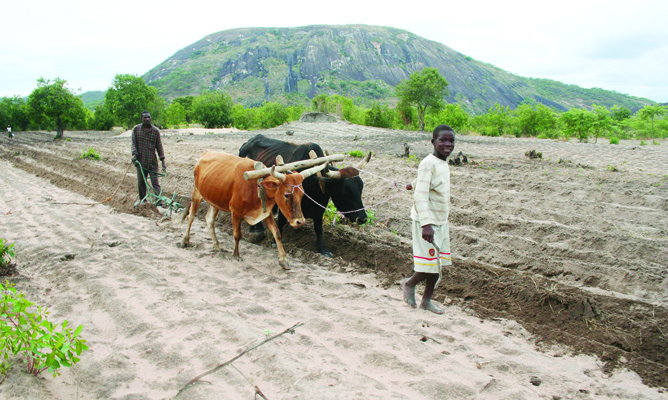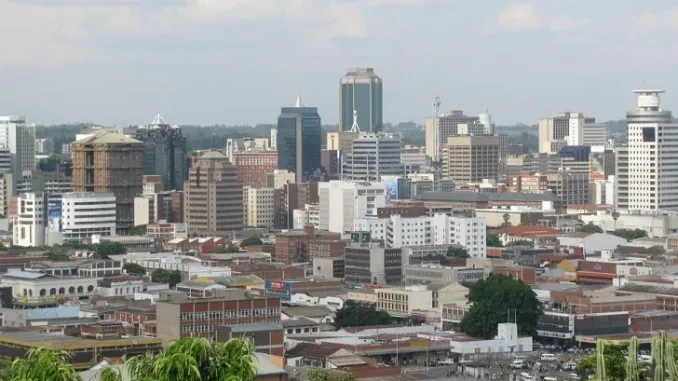
LESS than 60 days before the 2015/2016 farming season kicks-off, farmers are reportedly ill-prepared, as seeds for small grains and necessary funding are yet to be made available, an official has said, raising fears of a drought next year.
BY MTHANDAZO NYONI
Agricultural Rural Development Authority (Arda) board chairman, Basil Nyabadza told NewsDay in emailed responses yesterday that inadequacy of inputs and unavailability of financial resources were the major problems affecting agricultural preparedness and production in Zimbabwe.
“Our seeds are classified under four main categories, cereals, oil seeds, pulses and livestock. That covers all our ecological regions one to five. It’s not correct to say we have all seed available and ready for distribution,” said Nyabadza, who is also the Small Grains Producers’ Association chairman.
“That might be the case with maize seed, but clearly not the same with sorghum seed, groundnuts seed, sugar bean seed, cowpeas seed, roundnuts seed including tubers, namely sweet potato and Irish potato.”

Nyabadza said farmers would battle to have all inputs in time and some have not yet paid for delivery of their produce. He said farmers in some areas were victims of drought leading to loss of revenue, undermining their capacity to fund for the coming season.
“It’s fair to say, we are all in the process of seeing that small grain seed is made available in the shortest possible time especially to regions three, four and five, namely Matabeleland North, Matabeleland South, Masvingo, Midlands, parts of Manicaland, Parts of Mashonaland East, parts of Mashonaland Central and Mashonaland West. It’s correct to say the seed bank for small grains is not full at all,” he added.
- Chamisa under fire over US$120K donation
- Mavhunga puts DeMbare into Chibuku quarterfinals
- Pension funds bet on Cabora Bassa oilfields
- Councils defy govt fire tender directive
Keep Reading
However, Nyabadza said activity was underway to urgently address the situation.
He said that the seed industry has gone through serious transformation in the last 24 months.
“Due to a number of factors, investment in seed producing companies took root resulting in a serious change in terms of ownership and participation. Transnational companies invested heavily in the seed producing companies within Zimbabwe,” he said.
Nyabadza said the majority of the transnational companies do not produce small grains at all.
“It is important for government to empower local companies to maintain production of small grains especially with climate change becoming reality,” he said.
Nyabadza said it was important for all farmers to take farming as a business, and to reach out to water technology for improving yields. Access to water and harvesting water are now prerequisite for sound farming and would lead to improvement in production.
“Above all else, production has to be market led. A farmer must start by identifying the market, and move to a business model which will lead to a financial model then production,” he said.
Nyabadza said the major issue now was to invest in irrigation and utilisation of water. He said successful farming was about participation.
He said maize seed might not be appropriate in some of the country’s 62 farming districts, so farmers should try other crops suitable for their regions.
According to Zimbabwe Farmers Union, farmers need about $1,8 billion to finance a normal agricultural season. But at the moment they are hovering between $100 million and $200 million.











